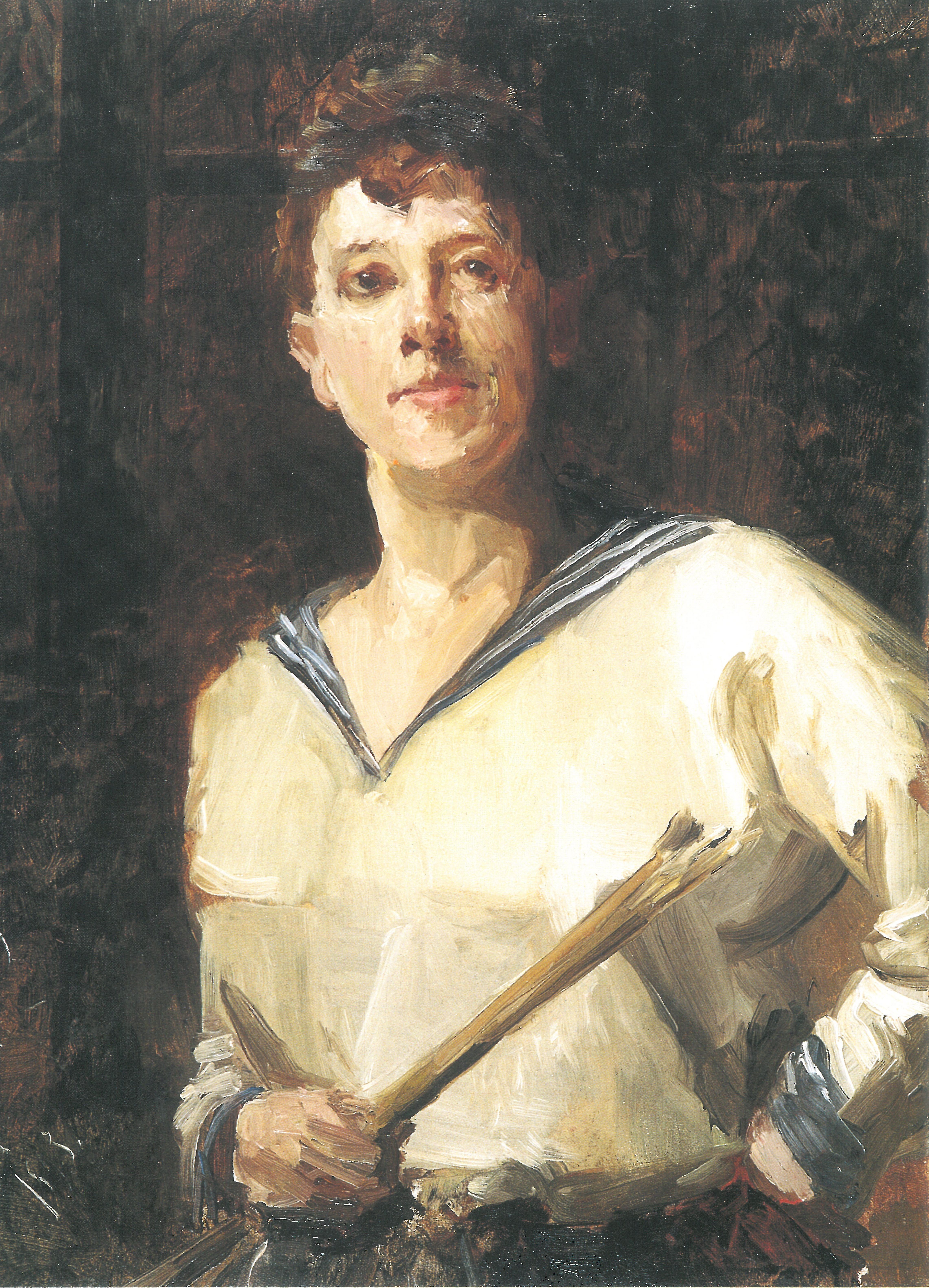written in her Journal, 1905
Quote of Werefkin's Journal, 1905; in Briefe an einen Unbekannten, ed. Clemens Weiler, Cologne: Verlag M. DuMont, 1960, p. 50
1895 - 1905
Marianne von Werefkin: Frases en inglés
Vol. 1: 'My beautiful One, My Unique!', pp. 130-140
1895 - 1905, Lettres à un Inconnu, 1901 – 1905; Museo Communale, Ascona
Quote from Werefkin's letter to Alexej von Jawlensky, 1910 Lithuanian Martynas-Mazvydas-National Library, Vilnius, RS (F19-1458,1.31) as reprinted in Weidle, Marianne Werefkin, Die Farbe beisst mich ans Herz, 108; as quoted in 'Identity and Reminiscence in Marianne Werefkin's Return Home', c. 1909; Adrienne Kochman http://www.19thc-artworldwide.org/spring06/52-spring06/spring06article/171-ambiguity-of-home-identity-and-reminiscence-in-marianne-werefkins-return-home-c-1909
1906 - 1911
Vol. 1: 'My beautiful One, My Unique!', pp. 130-140
1895 - 1905, Lettres à un Inconnu, 1901 – 1905; Museo Communale, Ascona
1906 - 1911
Fuente: a letter to Alexej von Jawlensky, between December 1909 and Spring 1910; as quoted in 'Ambiguity of Home: Identity and Reminiscence in Marianne Werefkin's Return Home, c. 1909', Adrienne Kochman http://www.19thc-artworldwide.org/spring06/52-spring06/spring06article/171-ambiguity-of-home-identity-and-reminiscence-in-marianne-werefkins-return-home-c-1909
1895 - 1905
Fuente: Lettres à un Inconnu, 1902 (Notebook I, p. 234) - Aux sources de l'expressionnisme. Presentation par Gabrielle Dufour-Kowalska. Klincksieck, 1999. p. 101
Vol. 1: 'My beautiful One, My Unique!', pp. 130-140
1895 - 1905, Lettres à un Inconnu, 1901 – 1905; Museo Communale, Ascona
Werefkin to Jawlensky, 1909-1910, fond 19-1458, pp. 35–36 as reprinted in Lauchkaite-Surgailene, Lauchkaite-Surgailene, "Marianna Verevkina. Zhizn' v iskusstve," Vilnius, no. 3, sec. 15, 136
1906 - 1911
1906 - 1911
Fuente: a letter to Alexej von Jawlensky, between December 1909 and Spring 1910; as quoted in 'Ambiguity of Home: Identity and Reminiscence in Marianne Werefkin's Return Home, c. 1909', Adrienne Kochman http://www.19thc-artworldwide.org/spring06/52-spring06/spring06article/171-ambiguity-of-home-identity-and-reminiscence-in-marianne-werefkins-return-home-c-1909
1895 - 1905
Variante: I am a woman, I lack every [ability for] creation. I can understand everything and cannot create.. .I don't have the words to express my ideal. I am looking for the person, the man, who can give this ideal form. As a woman, wanting someone who could give the internal world expression, I met Jawlensky...
Vol. 1: 'My beautiful One, My Unique!', pp. 130-140
1895 - 1905, Lettres à un Inconnu, 1901 – 1905; Museo Communale, Ascona
Vol. 1: 'My beautiful One, My Unique!', pp. 130-140
1895 - 1905, Lettres à un Inconnu, 1901 – 1905; Museo Communale, Ascona
1895 - 1905
Fuente: Lettres à un Inconnu, (Notebook II, p. 8) - Aux sources de l'expressionnisme. Presentation par Gabrielle Dufour-Kowalska. Klincksieck, 1999. p. 106
Vol. 1: 'My beautiful One, My Unique!', pp. 130-140
1895 - 1905, Lettres à un Inconnu, 1901 – 1905; Museo Communale, Ascona
she wrote in 1905
1895 - 1905
Fuente: Lettres a un Inconnu, (Notebook III, p. 120) - Aux sources de l'expressionnisme. Presentation par Gabrielle Dufour-Kowalska. Klincksieck, 1999. p. 156
from her short biography on the website of museum 'Lenbachhause', undated http://www.lenbachhaus.de/collection/the-blue-rider/werefkin/?L=1
1906 - 1911
Quote from Werefkin's lecture in 1914; as quoted in M. K. ČIURLIONIS AND MARIANNE VON WEREFKIN: THEIR PATHS AND WATERSHEDS, by Laima Lauckaité; Institute of Culture, Philosophy and Art, Vilnius
Werefkin gave her lecture during a regular Art Society meeting, 22 March 1914
after 1911
Vol. 1: 'My beautiful One, My Unique!', pp. 130-140
1895 - 1905, Lettres à un Inconnu, 1901 – 1905; Museo Communale, Ascona
Vol. 1: 'My beautiful One, My Unique!', pp. 130-140
1895 - 1905, Lettres à un Inconnu, 1901 – 1905; Museo Communale, Ascona
Quote of Marianne Werefkin, in a letter to Jawlensky, 1909-1910, fond 19-1460, 38-39 as reprinted in Lauchkaite-Surgailene, Vilnius no. 3, sec. 16, 136;; as quoted in 'Identity and Reminiscence in Marianne Werefkin's Return Home', c. 1909; Adrienne Kochman http://www.19thc-artworldwide.org/spring06/52-spring06/spring06article/171-ambiguity-of-home-identity-and-reminiscence-in-marianne-werefkins-return-home-c-1909
'Blagodat' is the name of the family landed estate in the Russian country where Jawlensky often accompanied Werefkin before their common move to Munich.
1906 - 1911
Vol. 1: 'My beautiful One, My Unique!', pp. 130-140
1895 - 1905, Lettres à un Inconnu, 1901 – 1905; Museo Communale, Ascona
Vol. 1: 'My beautiful One, My Unique!', pp. 130-140
1895 - 1905, Lettres à un Inconnu, 1901 – 1905; Museo Communale, Ascona
Quote from Werefkin's letter to Alexej von Jawlensky, between December 1909 and Spring 1910; as cited in 'Ambiguity of Home: Identity and Reminiscence in Marianne Werefkin's Return Home, c. 1909', Adrienne Kochman http://www.19thc-artworldwide.org/spring06/52-spring06/spring06article/171-ambiguity-of-home-identity-and-reminiscence-in-marianne-werefkins-return-home-c-1909
1906 - 1911
Vol. 1: 'My beautiful One, My Unique!', pp. 130-140
1895 - 1905, Lettres à un Inconnu, 1901 – 1905; Museo Communale, Ascona
Quote of Werefkin from Briefe an einen Unbekannten, 1901-1905. Köln, 1960, p. 19; as cited in M. K. ČIURLIONIS AND MARIANNE VON WEREFKIN: THEIR PATHS AND WATERSHEDS, by Laima Lauckaité; Institute of Culture, Philosophy and Art, Vilnius
1895 - 1905
Quote in Werefkin's Letter to Igor Grabar on August 10, 1895; Department of Manuscripts of the State Tretyakov Gallery, Fund 106. Item 3242
1895 - 1905
“.. he [ Jawlensky ] is the creation of my life, my ultimate goal, my torture.”
Note in her Journal, c. 1921; as cited in Lettres a un Inconnu, (Notebook III, p. 120) - Aux sources de l'expressionnisme. Presentation par Gabrielle Dufour-Kowalska. Klincksieck, 1999. p. 107 (notebook II, p.10).
after 1911
Vol. 1: 'My beautiful One, My Unique!', pp. 130-140
1895 - 1905, Lettres à un Inconnu, 1901 – 1905; Museo Communale, Ascona
